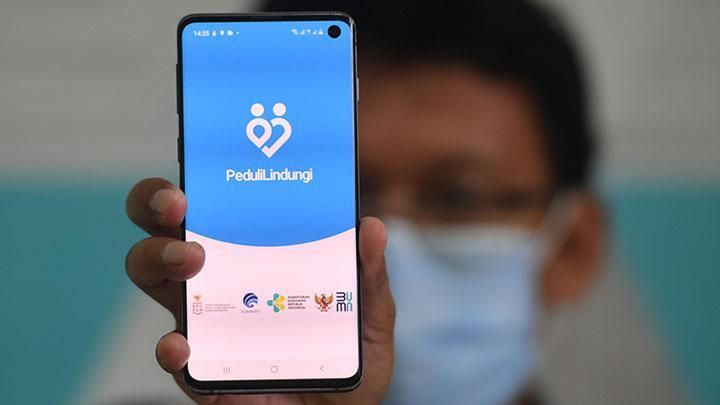Indonesia Must Seize Technology Toward Global Education Recovery via G20
- Nadia Fairuza

- Mar 26, 2022
- 4 min read
Updated: Dec 6, 2022
First published in The Jakarta Post (26/03/2022)
Indonesia’s Group of 20 presidency this year has given the world’s fourth largest nation a golden opportunity to demonstrate its international leadership, even though Russia’s recent invasion of Ukraine may not only affect G20 meetings, but also divert the group’s attention from its original agenda.
With its overarching theme of “Recover Together, Recover Stronger”, Indonesia seeks to initiate meaningful discussion among the world’s 20 largest economies to bounce back from the slump caused by the COVID-19 pandemic. The G20 Bali summit in October aims to address the pressing issues the world faces today, including in education.
The Education Working Group (EdWG), chaired by the Education, Culture, Research and Technology Ministry, has proposed four main priorities for discussions this year: universal quality of education, digital technology for education, solidarity and partnership, and the future of work post-COVID-19.
The pandemic has taken an enormous toll on the education sector and therefore, these priorities are crucial to supporting education recovery for not only Indonesia and G20 member states, but all countries around the world.
More than two years of the COVID-19 pandemic has exposed us to the structural inequality in education that has led to severe learning loss. It is predicted that learning loss will have serious consequences for the livelihood and wellbeing of future generations, even more so for those in the most vulnerable communities. As an impact of the pandemic, current students stand to lose up to US$17 trillion in lifetime earnings, according to the press release titled “Learning Losses from COVID-19” by the World Bank, UNESCO and UNICEF (December 2021). The loss could be even bigger if recovery efforts are not launched immediately and implemented properly.
Hence, the discussions at the EdWG meetings are essentially a race against time to fix education around the world before it worsens over time.
The pandemic also brought to light the crucial role of technology in education. Most education practitioners and experts have noted that this increased role of technology in education is here to stay.
While many students and teachers have faced difficulties in adapting to online or hybrid learning, including lack of access to technology and poor digital literacy, technology continues to play an important role in ensuring the continuity of learning during this difficult time. If we play our cards right, technology in education will help address learning loss and narrow education inequality (World Bank Blogs, December 2021) and could thus offer a solution to other problems discussed in the EdWG meetings.
Technology in education opens the gates of knowledge and opportunities for people outside big cities in Indonesia to learn and thrive in their chosen fields. The abundance of learning resources provided through technology in education will help students diversify their knowledge and come up with better solutions than if they relied solely on the materials available in the classroom.
With the proper integration of digital technology with teaching, students will be able to unlock their potentials through developing value-added skills and gaining knowledge that will benefit them in the future. Vulnerable communities will also greatly benefit from having access to technology in education.
As the education sector undergoes major shifts during and after the pandemic, the integration of technology with education is becoming even more inevitable than ever. Technology in education brings myriad opportunities for students to develop their potentials. In an increasingly digitized world, however, the digital divide is also widening at an alarming rate.
There is an evident digital gap across socioeconomic and cultural circumstances, such as income and education levels and geographical conditions. Students from wealthy urbanite families are more likely to be digitally connected and literate compared to students from poor families and rural areas.
As the chair of EdWG, the education ministry must ensure that discussions on technology in education touch upon this root problem to prevent digitally excluded communities from alienation as the rest of the world progresses rapidly.
For Indonesia, the digital divide is a persistent challenge hindering the optimum use of technology in education. Technology absorption across the archipelago is still low and in some regions, especially outside Java, remains uneven, creating an even wider gap in learning during the pandemic.
This is a problem other countries also face. The digital divide is also not exclusive to education, but rather, it is a complex societal issue affecting various stakeholders that the G20 must take seriously.
Indonesia must recognize that focusing solely on the potentials of technology in education, without addressing the underlying causes of the digital divide, will produce no substantial results. As a country with an obvious digital divide, Indonesia should call for joint efforts through the education ministry to help narrow this gap, such as by encouraging participating countries to share knowledge and lessons learned that could be contextualized for domestic circumstances.
Involving other working groups is also essential to addressing the deep-rooted causes of the digital divide. The EdWG should join forces with the digital economy and the development working groups by supporting their agenda on increasing connectivity and improving digital literacy.
Collaborating with other working groups will produce comprehensive solutions to the digital divide beyond what the EdWG could achieve alone, such as to promote international investment in digital infrastructures or reducing internet costs to accommodate all people.
The first EdWG meeting was held on March 18. We are all hoping that the discussions that took place then will generate substantial results, tackle the root causes of the education crisis, especially the digital divide, and come up with concrete, global solutions for recovery.




Comments